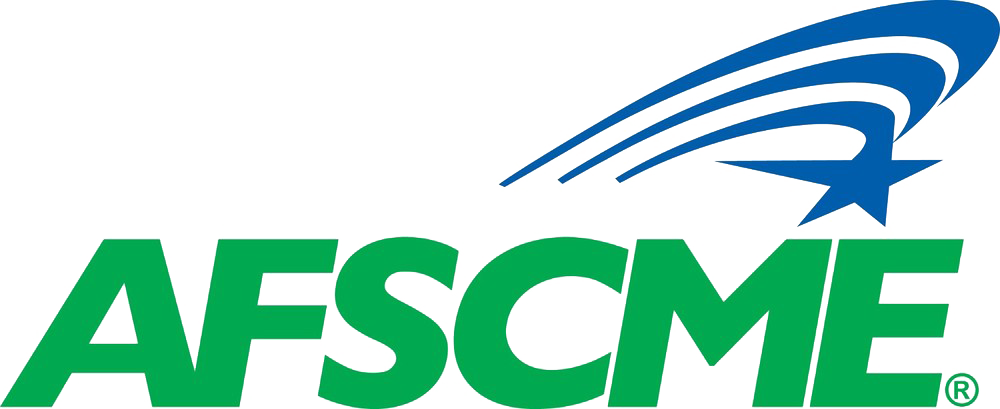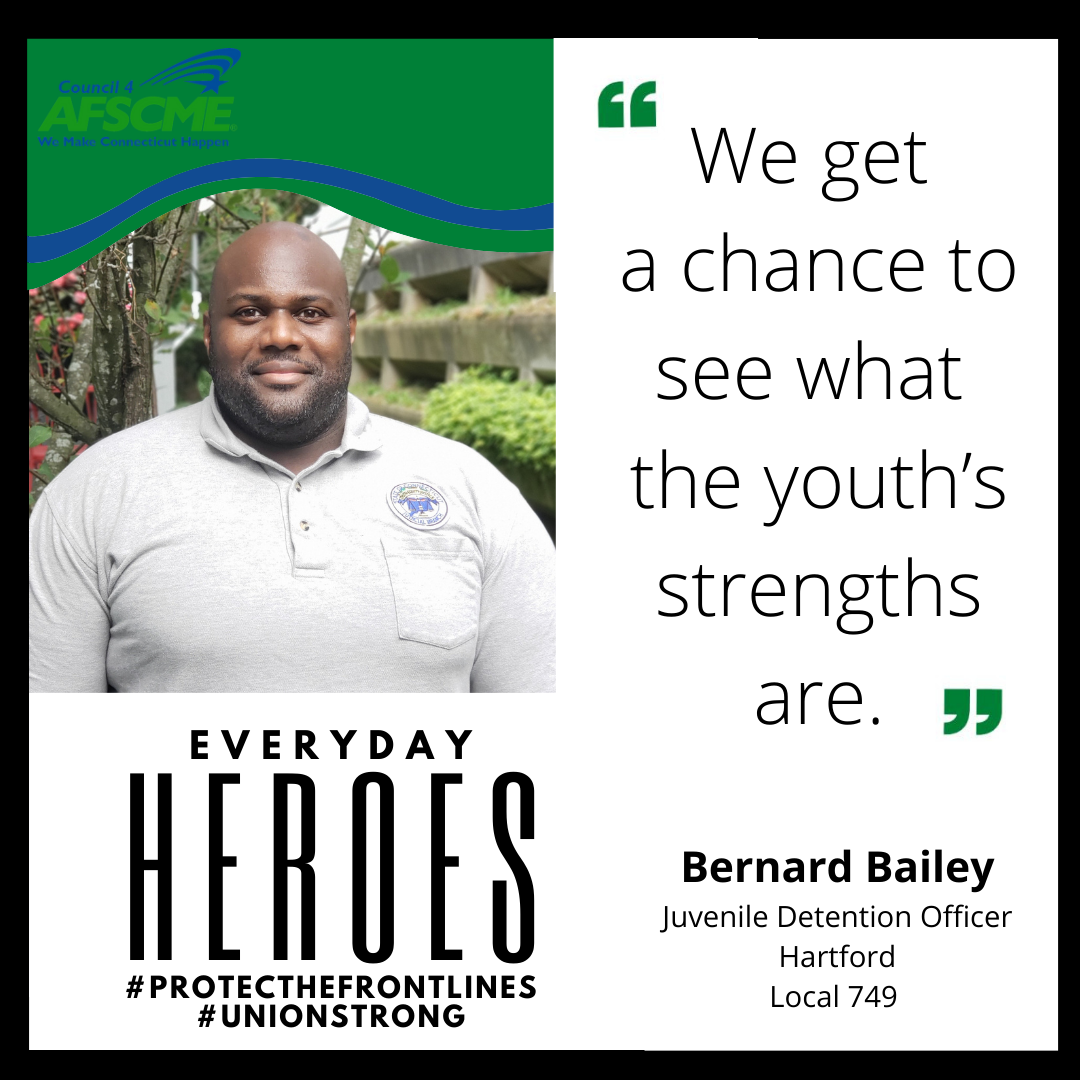Albert Einstein once said, “In the middle of every difficulty lies opportunity.”
Juvenile Detention Officer Bernard Bailey of AFSCME Local 749 (State Judicial Employees and Criminal Justice Employees Bargaining Unit), is proving the wisdom of that maxim through his work on the job and in the community.
For the past two years, Bailey has worked at the Hartford Juvenile Detention Center. He and other JDOs generally work in dangerous conditions synonymous with high-stress levels, burnout, and other mental-health related consequences. This was true even before the COVID-19 pandemic flourished and the state’s juvenile facilities in Hartford and Bridgeport became hot spots for infection.
“There is a sense of nervousness working with something that you can’t see,” said Bailey. “If it’s not contained or taken care of the first time, trying to stop the spread of it can be deadly. There is always a worry that you or the juveniles are going to catch it.”
The Hartford and Bridgeport centers house young people who have either been adjudicated as a juvenile and are on probation, or who are awaiting adjudication.
Working as a juvenile detention officer is challenging but also provides Bailey with a higher purpose of giving back. Whether it is through serving as a role model for the youth he supervises, supporting his fellow JDO brothers and sisters, or volunteering in his community, Bailey seizes those opportunities for good and helps them grow.
“We get a chance to see what [the youth’s] strengths are because we work with them daily,” explained Bailey. “A lot are good in artwork, rapping or singing, and some like to write poems and stories, including stories about their own lives. We encourage them to express those things and keep doing what they like to do and to always try to do better. The first song is a good song, but the second song, third and fourth song will become better with practice.”
Bailey serves on multiple local boards and commissions in his home city of Waterbury, such as the Wetlands Commission, Citizens Advisory Committee, and most recently the Human Rights Commission. The significance of the latter role elicits feelings of anxiety, but also pride and humility.
“Seeing all the things going on today and negative things that revolve around policy and violations around civil and human rights, it’s a big eye-opener,” he said. “For anyone serving in that type of capacity, you want to make a change as soon as possible so you don’t see injustice for the minority communities.”
Bailey understands and is interested in the deep connections between policy and its far reaching and enduring impact, so much so that he is pursuing a paralegal degree. He hopes to eventually go to law school and practice law.
As an AFSCME member, he is taking advantage of the AFSCME Free College program that makes it possible for members and their families to earn a degree completely online with the Eastern Gateway Community College.
“Being an adult learner is always tough because you’re trying to fit more in your schedule,” said Bailey. “The program provides the reality of what it’s like to work in a real law firm. I’ll be done next March. This is a great benefit that our union provides.”
When Bailey is not working, volunteering in his community, completing schoolwork, or doing family activities, he still manages to find the time to connect with his fellow union brothers and sisters. For example, to keep morale and spirits up, he is organizing a 10-mile easy trail bike ride for JDOs later this month.
“Some JDOs got sick and it hasn’t been a positive year,” explained Bailey. “I want to help build our group back and boost positive energy.”
As much as Bailey is a caretaker of his community, the youth he works with, and his fellow co-workers, he sees the union as acting in the same way: a caretaker for those who work in facilities where visible and invisible dangers are present.
“The union has played a vital role in making sure we are safe, and we have the proper amounts and the proper sizes of PPE,” he said. “They make sure protocols are put in place and are being followed. When we need someone to talk to, we talk to our union representative about how things are going.”
He adds, “Going through the circumstances of this pandemic, especially in the beginning, has shown when we’re all in there together, we’re always stronger together.”

